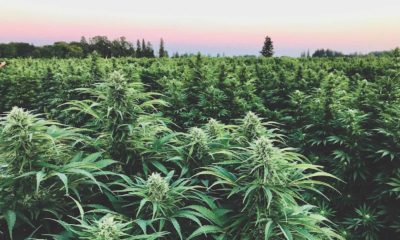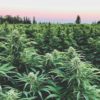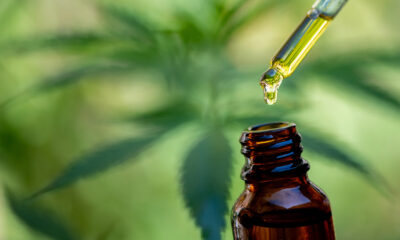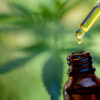
Cannabis
WADA Removes CBD From Banned Substances List
Professional athletes — from boxers to Olympians — will now be able to heal with CBD without fear.
The organization in charge of keeping competitive sports across the world free of performance-enhancing drugs has removed cannabidiol from its list of banned substances.
The World Anti-Doping Agency announced last week in its summary of modifications to their banned substances list that CBD had been removed and that they had changed their “cannabimimetics” category to “synthetic cannabinoids.”
“The synthetic cannabinoids are one of the main classes of novel psychoactive substances that have constantly emerging new drugs and changing availability,” they said in the announcement of the change.
The effort to change the list is no small task and WADA President Sir Craig Reedie explained the timelines in the announcement of this year’s modifications.
“Updated annually, the List is released three months ahead of taking effect so that all stakeholders — in particular athletes and their entourage — have sufficient time to familiarize themselves with the document and its modifications,” Reedie said. “It is vital that all athletes and entourage take the necessary time to consult the List; and that, they contact their respective anti-doping organizations (ADOs) if they have any doubts as to the status of a substance or method.”
The revision process starts in early January, with an extensive nine-month consultation process where WADA’s experts gather information and pitch changes to WADA stakeholders. After the stakeholders get to put their two cents in, a final draft that is more palatable to all is reviewed by the Agency’s Health, Medical and Research (HMR) Committee.
“In reviewing the List, experts examine such sources as: scientific and medical research; trends; and, intelligence gathered from law enforcement and pharmaceutical companies in order to stay ahead of those that endeavor to cheat the system,” said WADA Director General, Olivier Niggli, in the statement.
We reached out to the United States’ Anti-Doping Agency to see if they knew how CBD found its way off the list and they were quick to direct us to WADA for questions on the thought process around the decision. WADA is yet to respond to our inquiry.
The most famous CBD run-in for WADA as of late followed the second UFC fight between Nate Diaz and Conor McGregor. After taking part in the main event of one of the best selling MMA pay-per-view figths of all time, Diaz proceeded to whip out a vape pen at the post-fight press conference. When one of the journalists in attendance asked Diaz what he was puffing on, he was quick to assure all it was just CBD. At the time, this prompted an investigation from USADA. Diaz ended up getting a stern warning over the incident last October. He’d go on to win Cannabis Now’s Athlete of the Year in 2016.
Erik Magraken of CombatSportsLaw.com was one of the first to spot the changes to WADA law. We asked him if CBD sponsor money may jump in the MMA advertising space even due to the change.
“I suspect you are right that this will open the door to sponsorship opportunities,” he replied
“Many fighters have been vocal about their positive experiences with CBD and to the extent that the substance is no longer banned in competition I can see sponsors looking to capitalize on the new landscape,” said Magraken.
America’s leading pot policy organizations were glad to see the progress from the sporting world.
“NORML applauds the World Anti Doping Agency for taking action removing CBD from its list of banned substances,” said NORML Executive Director Erik Altieri. “Research on CBD has revealed the compound to be non-toxic, non-psychoactive, and to possess a multitude of therapeutic properties — even Nora Volkow, the director of the US National Institute on Drug Abuse (NIDA), acknowledged that CBD is ‘a safe drug with no addictive effects.’”
Altieri also said allowing athletes to seek relief from this safer alternative to many pharmaceutical drugs is both a morally and scientifically sound decision.
Morgan Fox of the Marijuana Policy Project says this is another good move from WADA, who he says have been making some solid reforms as of late.
“WADA has actually been really reasonable recently, including upping the allowable threshold for THC metabolites to 125ng/mL a few years ago,” said Fox. “While WADA pretty much sets the standards for athletic drug testing, all the major pro sports organizations in the US still ban CBD and THC, so it won’t have as much impact here as it may internationally.”
TELL US, should professional athletes be allowed to use to CBD?

























